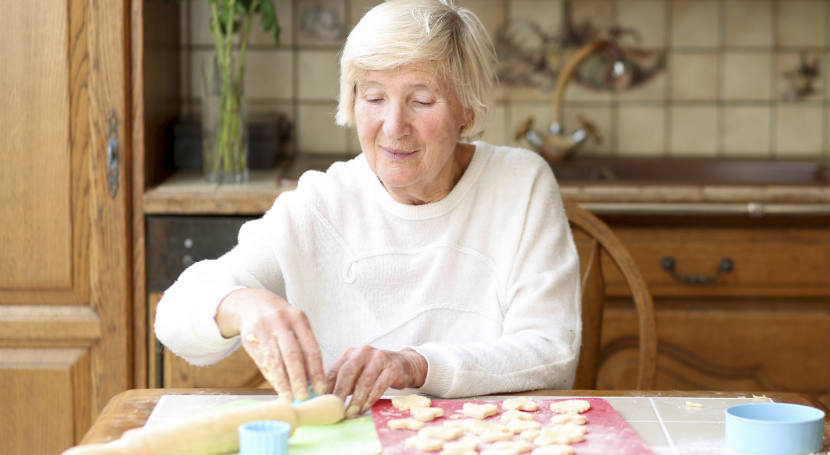
We all know what it feels like to be bored. At first, a few days off work sounds like a wonderful escape from the norm. Without anything urgent on your calendar, you feel calm and relaxed. After a week off work, however, you start to become anxious and antsy. With nothing meaningful to do, you start feeling kind of useless.
This is exactly how our loved ones with Alzheimer’s disease or dementia feel when they are not being engaged on a personal level. After being separated from the activities that once brought fulfillment, patients often experience a rapid decline.
Just because a patient’s basic needs are being met does not mean he or she, as a person, suddenly feels comfortable and complete. Providing person-centered care means you understand the person you’re caring for, and you’re meeting them at their point of need. Part of that need is engaging the client in meaningful activities throughout the day.
An 85-year-old woman who loves to garden does not suddenly abandon her love for plants and flowers as her dementia gets worse. You often hear family caregivers say things like, “Well, she can’t garden anymore, but she used to love doing that.” At Tender Rose, we can’t accept that explanation at face value.
Maybe this woman would like to try gardening again if we modified the activity to meet her at her level. Perhaps we set some potted plants up on a table in front of her wheelchair, or maybe we take her shopping to help us pick out the right seeds to plant. There are numerous ways she can continue to do the things she loves, and there’s no doubt she’ll feel confident and empowered afterward.
We once had a client who enjoyed baking. She used to bake cookies for her family, and it brought her great fulfillment and joy. As her dementia became worse, however, she was unable to put the baking ingredients together. One of our Memory Care Professionals decided to help her maintain this sense of fulfillment and independence.
The MCP made an activity out of going to the grocery store to buy supplies. She then laid out the baking ingredients in front of the client and aided her each step of the way. Once again, the client was able to do something she loved. After a successful day of baking, the woman was empowered. “I made cookies yesterday,” she told our MCP the next day. She did not recall the MCP’s help with the cookies, but she remembered the feeling that came with the successful completion of a beloved task.
Person-centered, activity-based care alleviates boredom and depression for our clients with dementia. When they are engaged in programs and tasks that make them feel useful, they feel a sense of purpose and pride. Tender Rose’s Memory Care Professionals work hard to deliver this well-rounded care to each and every client. When a person feels fulfilled and accomplished, they are more likely to thrive.
For more information about Tender Rose’s person-centered dementia care in your facility, learn about Services for Senior Facilities.
Amanda is a dynamic marketing professional with two decades of experience working in advertising, healthcare marketing, and corporate communications. Her experience includes market research, strategy development, program execution, event planning, and authorship of educational & promotional content. From her early days in the media department of a small advertising agency to her current role directing her organization’s marketing initiatives, Amanda has developed broad-ranging expertise in integrated marketing communications. Amanda earned her bachelor's degree in advertising from San Jose State University and spent part of her college career studying abroad at Oriel College, Oxford University, in England.